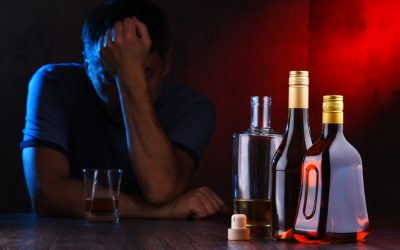Developing self-awareness, honing coping skills, and utilizing support systems are effective strategies for managing relapse triggers after exploring relapse and its coping strategies. Self-awareness is the power to recognize and comprehend one’s own emotions, thoughts, and behaviors. By understanding your triggers, you can take steps to stay away from them and manage relapse triggers more effectively.

Self-Awareness: A Key to Addressing Internal Triggers

Internal and external triggers can dramatically impact one’s journey toward sobriety. Here we delve into detailed examples of each, providing a comprehensive look at the triggers you might face and strategies for managing them. As a safe space for study and practice, The Retreat empowers those who seek contented sobriety. When triggered, emotions like anger, guilt, and irritability arise along with a decline in self-esteem, paving the way for various unhealthy behaviors. Some might even be traumatizing enough to provoke harmful coping mechanisms, including self-harm, harming others, and substance abuse as well.
What Are Relapse Triggers: Internal Vs External Relapse Triggers

Others may casually say they’re triggered anytime something angers or upsets them, further causing the word to lose its meaning. If you don’t already have a trusted therapist, you may want to meet with several before finding one you feel comfortable with who meets your needs. Therapy tends to take time, so having patience with yourself and the process can be essential to long-term success. Enter your phone number below to receive a free and confidential call from a treatment provider. There are other triggers such as sights, smells, conflict, aggression, news stories, books, and memories which can cause disruption in our lives. An easy way to deal with the gas station or corner store trigger is to avoid that location, if possible.
Recognizing Relapse Triggers to Avoid Risky Situations
By staying vigilant and seeking help when necessary, you can continue your recovery journey and avoid the pitfalls of relapse. When people in recovery succumb to triggers, their brains create reasons to use substances despite knowing that they must remain abstinent. This ongoing fight increases their vulnerability to cravings, which may result in http://www.tramvision.ru/lapsus/2015/uncle-movie.shtml a potential relapse.
- Someone exposed to a trigger while symptomatic may be more vulnerable and the emotional reaction may be stronger.
- Dealing with triggers is one of the most common shared experiences in recovery, and it may feel scary to some.
- Interpersonal relationships are not only a huge component of mental health, but also very important to overcoming the isolation of trauma and PTSD.
Emotional turmoil is a set of intense emotions such as sadness, depression, and anger, which can be a trigger for an http://peacekeeper.ru/en/news/32630 emotional relapse. On the other hand, someone may experience cravings while feeling low or sad. Negative emotions like sadness, depression, guilt, loneliness, and anger can all be potential triggers for relapse.

Don’t face these challenges alone—join our community at The Retreat today! http://wow-helper.ru/index.php?limitstart=64 Take that first step toward overcoming your triggers by reaching out to us; we’re here to support you every step of the way on your path toward lasting recovery. Substance use disorders can often lead to poor nutrition, malnourishment, and dehydration.